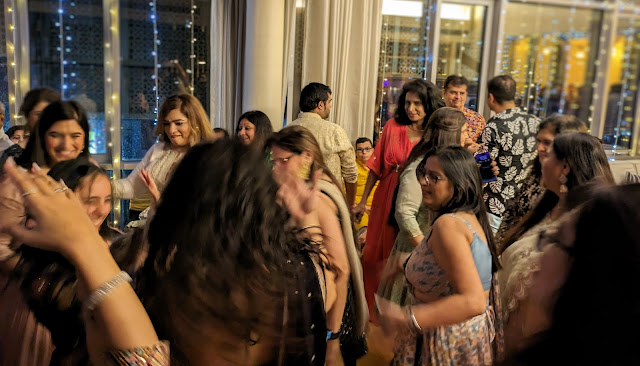
There's a reason I haven't blogged in a few weeks. The crisis in the region I'm temporarily calling home is impossible to ignore, not just because I live in the United Arab Emirates but because the issue falls squarely in my portfolio. And because M and his family have a personal connection to the conflict. And because I have many Arab, Jewish, and Muslim people I love who feel less safe than they ever have right now. And because every day I wake up to new horrors in the media: pictures and descriptions and stories about so many innocent people who will never get their lives or their loved ones back. (I'm grateful for the courageous journalists, editors, doctors, humanitarian workers, photographers, and all those who are making sure some of those stories the rest of the world would never know get told.)
I studied the Israeli-Palestinian conflict quite a bit in school, including the history and politics and utterly contradictory narratives of the two sides, and I've spent a lot of time over the years debating people on what the United States should or shouldn't do. As a student, I had the luxury of seeing the issue through an intellectual and academic lens. After all, I've never experienced war or terrorism or displacement firsthand. Now, I come to the issue with a different mandate: one that dictates I have to stay professional, apolitical, and in line with U.S. policy. When we serve as diplomats overseas, members of the Foreign Service are subject to some of the strictest restrictions on free speech and expression that can be found in U.S. law and practice. While in other jobs you might be free to say and do what you want in your free time, Foreign Service members abroad are pretty much considered official representatives of the U.S. government 24/7. That affects what I post on social media, blog about, put in emails, and say out loud or even on the phone.
If I started spouting my hot takes on U.S. foreign policy or on the decisions of our elected leaders, I would almost certainly be out of a job quickly. That's why you won't hear my - or my colleagues' - hot takes on current events. The vast majority of us are doing our best to do the right thing as best we know how in the many small ways that we actually have influence over, and I appreciate those who cared enough to let me know they were thinking of me and M. And I am trying my best to give grace to those who have lashed out with unkind words, because I know it comes from a place of pain, and there's plenty of pain to go around.
If you're reading this, I hope you educate yourself on how we got to this point. I hope you challenge people who share misinformation, of which there has been so much, even if their misinformation supports your view. I hope you stand up for what you believe in, let your elected representatives know, and vote. I hope you fight hate in all its forms, including anti-Arab racism, anti-Semitism, and Islamophobia, and leave space for real conversations that change people's hearts and minds. I hope you support reputable organizations you believe in - a favorite of mine is Doctors without Borders.
Someday when I'm retired and have left the Foreign Service and can be a private citizen again, I would be happy to share my (unclassified) opinions, frustrations, missteps, and victories with a good friend over mocktails. But until then, please know that even though many of us are passionate and opinionated about the work we do (and that's one of the reasons why we joined in the first place), we'll have to keep our strongest exchanges of views inside the institution... for now.




